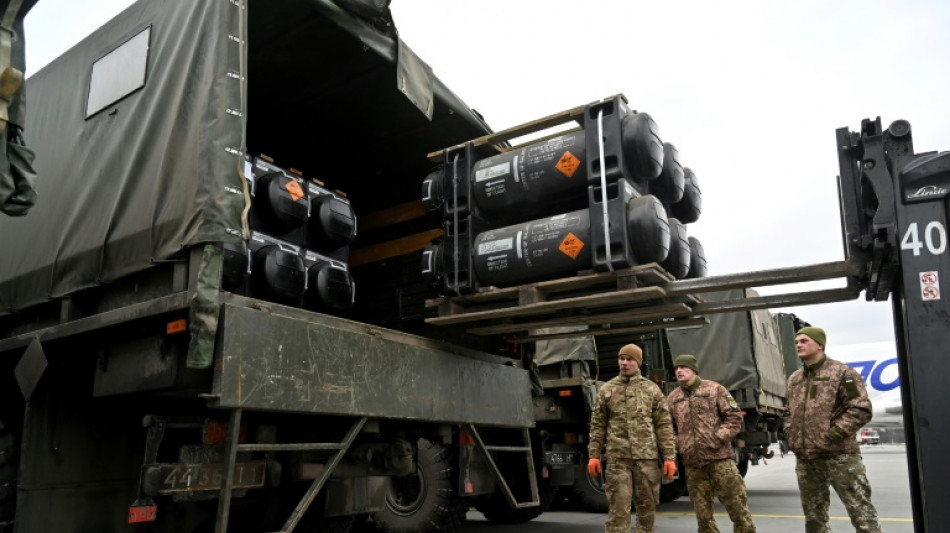
-
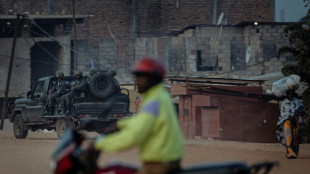 M23 militia says to pull out of key DR Congo city at US's request
M23 militia says to pull out of key DR Congo city at US's request
-
Thousands of glaciers to melt each year by mid-century: study

-
 China to impose anti-dumping duties on EU pork for five years
China to impose anti-dumping duties on EU pork for five years
-
Nepal starts tiger census to track recovery

-
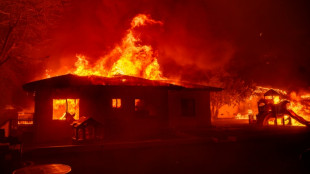 Economic losses from natural disasters down by a third in 2025: Swiss Re
Economic losses from natural disasters down by a third in 2025: Swiss Re
-
Indonesians reeling from flood devastation plea for global help

-
 Timeline: How the Bondi Beach mass shooting unfolded
Timeline: How the Bondi Beach mass shooting unfolded
-
On the campaign trail in a tug-of-war Myanmar town

-
 Bondi Beach suspect visited Philippines on Indian passport
Bondi Beach suspect visited Philippines on Indian passport
-
Kenyan girls still afflicted by genital mutilation years after ban

-
 Djokovic to warm up for Australian Open in Adelaide
Djokovic to warm up for Australian Open in Adelaide
-
Man bailed for fire protest on track at Hong Kong's richest horse race

-
 Men's ATP tennis to apply extreme heat rule from 2026
Men's ATP tennis to apply extreme heat rule from 2026
-
10-year-old girl, Holocaust survivors among Bondi Beach dead
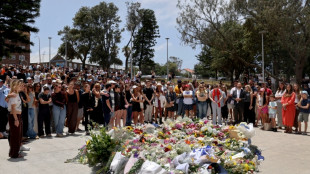
-
 Steelers edge towards NFL playoffs as Dolphins eliminated
Steelers edge towards NFL playoffs as Dolphins eliminated
-
Australian PM says 'Islamic State ideology' drove Bondi Beach gunmen

-
 Canada plow-maker can't clear path through Trump tariffs
Canada plow-maker can't clear path through Trump tariffs
-
Bank of Japan expected to hike rates to 30-year high

-
 Cunningham leads Pistons past Celtics
Cunningham leads Pistons past Celtics
-
Stokes tells England to 'show a bit of dog' in must-win Adelaide Test

-
 EU to unveil plan to tackle housing crisis
EU to unveil plan to tackle housing crisis
-
EU set to scrap 2035 combustion-engine ban in car industry boost

-
 Australian PM visits Bondi Beach hero in hospital
Australian PM visits Bondi Beach hero in hospital
-
'Easiest scam in the world': Musicians sound alarm over AI impersonators

-
 'Waiting to die': the dirty business of recycling in Vietnam
'Waiting to die': the dirty business of recycling in Vietnam
-
Asian markets retreat ahead of US jobs as tech worries weigh

-
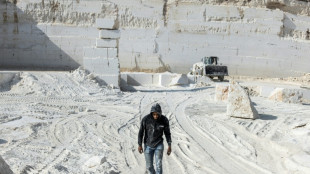 Famed Jerusalem stone still sells despite West Bank economic woes
Famed Jerusalem stone still sells despite West Bank economic woes
-
Trump sues BBC for $10 billion over documentary speech edit

-
 Chile follows Latin American neighbors in lurching right
Chile follows Latin American neighbors in lurching right
-
Will OpenAI be the next tech giant or next Netscape?

-
 Khawaja left out as Australia's Cummins, Lyon back for 3rd Ashes Test
Khawaja left out as Australia's Cummins, Lyon back for 3rd Ashes Test
-
Australia PM says 'Islamic State ideology' drove Bondi Beach shooters

-
 Scheffler wins fourth straight PGA Tour Player of the Year
Scheffler wins fourth straight PGA Tour Player of the Year
-
New APAC Partnership with Matter Brings Market Logic Software's Always-On Insights Solutions to Local Brand and Experience Leaders

-
 Security beefed up for Ashes Test after Bondi shooting
Security beefed up for Ashes Test after Bondi shooting
-
Wembanyama blocking Knicks path in NBA Cup final

-
 Amorim seeks clinical Man Utd after 'crazy' Bournemouth clash
Amorim seeks clinical Man Utd after 'crazy' Bournemouth clash
-
Man Utd blow lead three times in 4-4 Bournemouth thriller

-
 Stokes calls on England to 'show a bit of dog' in must-win Adelaide Test
Stokes calls on England to 'show a bit of dog' in must-win Adelaide Test
-
Trump 'considering' push to reclassify marijuana as less dangerous

-
 Chiefs coach Reid backing Mahomes recovery after knee injury
Chiefs coach Reid backing Mahomes recovery after knee injury
-
Trump says Ukraine deal close, Europe proposes peace force

-
 French minister urges angry farmers to trust cow culls, vaccines
French minister urges angry farmers to trust cow culls, vaccines
-
Angelina Jolie reveals mastectomy scars in Time France magazine

-
 Paris Olympics, Paralympics 'net cost' drops to 2.8bn euros: think tank
Paris Olympics, Paralympics 'net cost' drops to 2.8bn euros: think tank
-
Chile president-elect dials down right-wing rhetoric, vows unity

-
 Five Rob Reiner films that rocked, romanced and riveted
Five Rob Reiner films that rocked, romanced and riveted
-
Rob Reiner: Hollywood giant and political activist

-
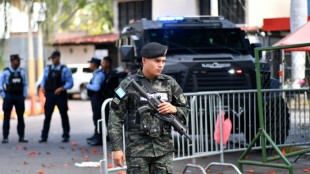 Observers say Honduran election fair, but urge faster count
Observers say Honduran election fair, but urge faster count
-
Europe proposes Ukraine peace force as Zelensky hails 'real progress' with US


US ships artillery to Ukraine to destroy Russian firepower
The push by the United States to send artillery to Ukraine aims to degrade Russian forces -- not only on the immediate battlefield but over the longer term, according to US Defense Secretary Lloyd Austin and military experts.
The United States, France, Czech Republic and other allies are sending scores of the long-range howitzers to help Ukraine blunt Russia's mounting offensive in the eastern Donbas region.
Backed by better air defense, attack drones and Western intelligence, the allies hope that Kyiv will be able to destroy a large amount of Russia's firepower in the looming showdown.
After returning from Kyiv, where he met Ukraine defense chiefs and President Volodymyr Zelensky, Austin told journalists in Poland early Monday that Washington's hopes are larger than that.
Russia "has already lost a lot of military capability, and a lot of its troops, quite frankly. And we want to see them not have the capability to very quickly reproduce that capability," Austin said.
"We want to see Russia weakened to the degree that it can’t do the kinds of things that it has done in invading Ukraine."
- 'War of attrition' -
That is a shift from Washington's initial approach, when they simply hoped to help prevent Moscow's seizure of the Ukrainian capital and the overthrow of Zelensky's government.
In fact, aided by anti-aircraft and anti-armor missiles supplied by the United States and European allies, Ukrainian troops forced the Russian military to withdraw from northern Ukraine within six weeks of the February 24 invasion.
But Moscow now controls significant swathes of eastern and southern Ukraine, apparently aiming to expand to the center of the country by sending in more troops and equipment.
Their plan, experts believe, is to use long-range shelling to drive back most of Ukraine's forces and only then send in ground troops and tanks to secure the land.
Ukraine's best option is to fight back with superior artillery -- backed by protection from air assaults -- to destroy Russian firepower, according to Mike Jacobson, a US civilian expert in field artillery.
Jacobson predicted that this would lead to a "war of attrition" in which Ukraine, with ally-supplied equipment with longer ranges and more accurate targeting, could stop the Russians cold.
"I believe that superior artillery will decrease the Russians' ability to sustain this fight," Jacobson told AFP.
Phillips O'Brien, a University of St. Andrews professor of strategic studies who posts daily analyses of the war on Twitter, wrote that the coming artillery fight will resemble World War I, each side trying to wear the other down with grueling shelling.
The Russian army "is considerably smaller and suffered major equipment losses. Ukrainian army is smaller, but about to be much better armed," he said.
"Russia needs to change that dynamic or it loses the attrition war."
- Rapid deployment -
The US and allies are moving fast with the supplies to take advantage of the slow regrouping of Russian forces after their setback in northern Ukraine.
Already at least 18 of the 90 towed artillery pieces Washington promised in the past two weeks have been delivered to Ukrainian forces, and more are being rushed in early this week, according to a Pentagon official.
Washington is also supplying nearly 200,000 rounds of howitzer ammunition, and is arranging for ammunition supplies for the Russian-made artillery that Ukraine forces currently operate.
Some 50 Ukraine troops have already been trained to use the US howitzers, and more are being trained this week.
Meanwhile France is sending its ultra-advanced Caesar mobile howitzer, and the Czech Republic is delivering its older self-propelled howitzers.
Canada too is sending howitzers and advanced, guided "Excalibur" shells that can travel more than 40 kilometers and deliver munitions precisely on target.
"The fight they're in in the Donbas is going to be heavily reliant on what we call long-range fires, artillery particularly," a senior US defense official said.
"That's why we're focusing them on getting them artillery as well as tactical UAVs," the official said.
That was a reference to allies supplying "suicide drones," bomb-armed unmanned aerial vehicles that can be directed for hours to search out and then explode themselves on Russian targets.
But no one is saying such a strategy will allow Ukraine to fully drive out the Russians.
If Kyiv does prevail in the artillery showdown, it will "eventually force them (Russia) to either escalate or negotiate realistically," said Jacobson.
"Russia will be frustrated but not defeated."
Nogueira--PC
